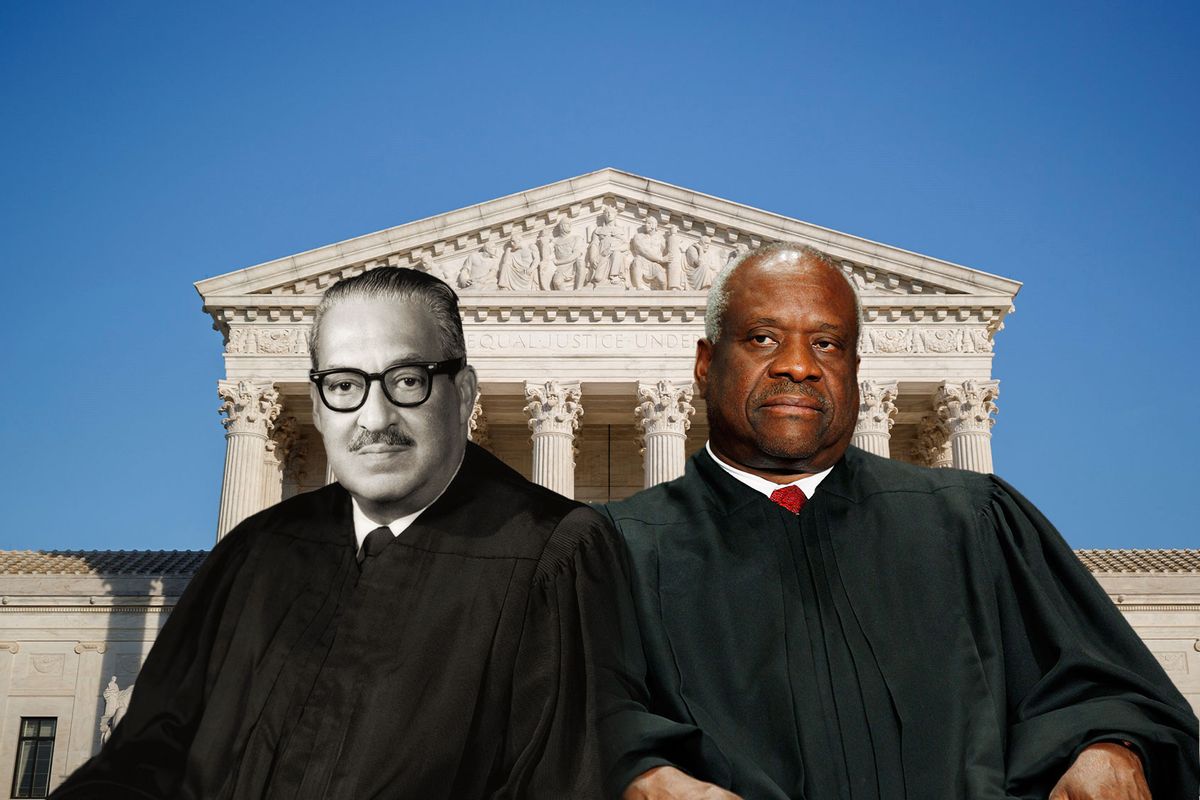Last week, the Supreme Court's conservative majority resurrected "separate but equal" in public accommodations.
In 1896, the Supreme Court issued one of the most shameful decisions in US history, Plessy vs. Ferguson. The landmark decision upheld 'separate but equal' public accommodations, barring recently freed black people from 'white' accommodations including lodging, businesses, and schools. For decades, the ruling stood as the legal justification for the hateful scourge of Jim Crow.
It would take more than fifty years of social upheaval and civil rights demonstrations before the Court finally admitted it was wrong. In 1954, in Brown vs. Board of Education, the Court overturned Plessy, ruling that separate public accommodations violate the equal protection clause of the 14th Amendment, which holds that no state can "deny to any person within its jurisdiction the equal protection of the laws."
SCOTUS carves out new exceptions
With its decision in the 303 Creative LLC v. Elenis case, the Supreme Court's conservative majority returned to the days of sanctioned separation by re-casting discriminatory conduct as 'free speech.'
In 303 Creative, the Court ruled that web design services — a public accommodation by the court's definition — are "creative expressions" entitled to a "free speech" carve-out from anti-discrimination laws. Writing for the majority, Justice Neil Gorsuch repackaged a web designer's religious objection to gay marriage as a superficially anodyne "pure speech" question, concluding that requiring web designers to serve same-sex couples would be "coercing" them to make "statements" with which they disagreed.
The Court has now conflated discriminatory acts into 'creative expressions' under the First Amendment. The ruling involved wedding websites and gay couples, but its application is nowhere so confined. Web designers can now refuse service to any group (gay, black, interracial, etc.) doing something that offends their personal beliefs, and can also advertise that those groups "will not be served."
The dissent
Dissenting Justices Sotomayor, Kagan and Jackson presented decades of Supreme Court precedent holding that antidiscrimination laws in commerce don't target speech, they target conduct, the act of discrimination.
The tragedy of 303 Creative isn't that bigots are getting away with bigotry. It's that the high Court relegated certain individuals to second-class status without so much as a glance at the 14th Amendment, just as it did last year in Dobbs.
The dissent also disagreed that web designs are pure protected "speech." Professional web design incorporates standard commercial elements: interfacing, streaming, code, navigation, photos, consultation, music and messaging. A custom website does not convey the developer's personal beliefs, it conveys an underlying commercial message. Finally, the designer chose to sell her websites to the public, a public accommodation protected under the anti-discrimination laws of the state, laws that don't apply to religious organizations but do apply to for-profit businesses.
Want a daily wrap-up of all the news and commentary Salon has to offer? Subscribe to our morning newsletter, Crash Course.
Rejecting these arguments, the majority focused exclusively on the designer's "speech" rights, sarcastically dismissing the dissent's "separate but equal" warning and concern for groups who will be denied service.
Suspect foundation, suspect reasoning
The procedural history alone reveals a majority eager to set national policy — not a good look for Federalist Society jurists who claim to reject judicial overreach.
First, SCOTUS took the case prophylactically, before the designer had even begun her web design business. Foundational "standing" in the case was not based on any injury, imminent or otherwise, it arose from a fictional request for service. Why would the Court embrace a flimsy, extrajudicial "pre-enforcement challenge" based on hypotheticals? To set policy.
Second, Colorado's Anti-Discrimination Act prohibits public businesses from denying "the full and equal enjoyment" of their goods and services to any customer based on his race, creed, disability, or sexual orientation. Discussing literal "public accommodations" like inns and hotels, Gorsuch suggested they were historically prohibited from discriminating only because they enjoyed market monopolies. There is no known case that limits anti-discrimination to monopolies; Gorsuch seems to think there should be, implying that small businesses can turn away groups they don't like.
Third, Gorsuch summarily dismissed Sotomayor's "separate but equal" objections as "pure fiction," delivering a tutorial on how you, too, can legally refuse to serve people you don't like. There's virtually no profession that lacks "creative expression." Under the Court's reasoning, any professional who engages in "expressive conduct" (chefs, architects, administrators, etc.) can recast discriminatory bias — against whomever — as protected speech. Simply "express" your beliefs in the normal course of business, the Court will conflate your speech with your service and voila! — discrimination is protected speech. If you run an inn, write on your kiosk that homosexuality is a sin. Your speech will be protected by the First Amendment, with the added bonus that gay patrons would rather sleep in their car than lodge there. If you get sued, stress the expressive elements of your business, from your choice of furnishings, colors and fabrics to marketing, including the fanciful words you inscribe on the bibles in each room. Because your curated rooms are your "statement" of expressive conduct, letting gay lodgers sleep in them conveys personal approval of homosexuality, a statement the state cannot coerce you into.
Concluding her dissent, Sotomayor describes a "sad day" for civil rights, coming just as hundreds of anti-LGBTQ laws have been introduced throughout the country, and a major candidate for U.S. president has made gay persecution his campaign focus. But the tragedy of 303 Creative isn't that bigots are getting away with bigotry. It's that the high Court relegated certain individuals to second-class status without so much as a glance at the Fourteenth Amendment, just as it did last year in Dobbs.
The Court's right-wing bloc has delivered the goods to the dark money that put it there, with a clear advertisement of its own. Equal Protection: Women and minorities need not apply.



Shares